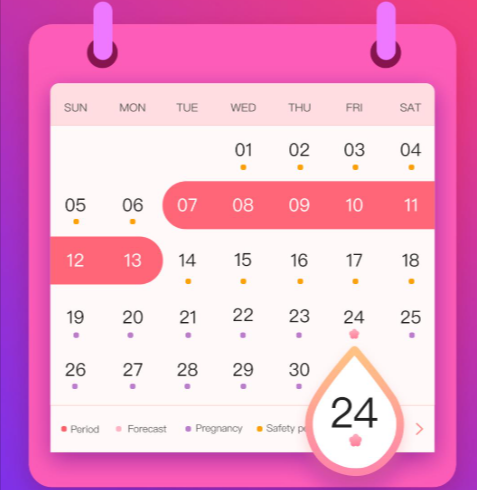Escitalopram
What is escitalopram?
Escitalopram is an antidepressant belonging to a group of drugs called selective serotonin reuptake inhibitors (SSRIs). It affects chemicals in the brain that may be unbalanced in people with depression or anxiety.
Escitalopram is used to treat major depressive disorder in adults and adolescents at least 12 years old.
Escitalopram is also used to treat anxiety in adults.
Paroxetine side effects
Get emergency medical help if you have signs of an allergic reaction to paroxetine (hives, difficult breathing, swelling in your face or throat) or a severe skin reaction (fever, sore throat, burning eyes, skin pain, red or purple skin rash with blistering and peeling).
Report any new or worsening symptoms to your doctor, such as: mood or behavior changes, anxiety, panic attacks, trouble sleeping, or if you feel impulsive, irritable, agitated, hostile, aggressive, restless, hyperactive (mentally or physically), more depressed, or have thoughts about suicide or hurting yourself.
Call your doctor at once if you have:
racing thoughts, decreased need for sleep, unusual risk-taking behavior, feelings of extreme happiness or sadness, being more talkative than usual;
blurred vision, tunnel vision, eye pain or swelling, or seeing halos around lights;
unusual bone pain or tenderness, swelling or bruising;
changes in weight or appetite;
easy bruising, unusual bleeding (nose, mouth, vagina, or rectum), coughing up blood;
severe nervous system reaction – very stiff (rigid) muscles, high fever, sweating, confusion, fast or uneven heartbeats, tremors, fainting; or
low levels of sodium in the body – headache, confusion, slurred speech, severe weakness, loss of coordination, feeling unsteady.
Seek medical attention right away if you have symptoms of serotonin syndrome, such as: agitation, hallucinations, fever, sweating, shivering, fast heart rate, muscle stiffness, twitching, loss of coordination, nausea, vomiting, or diarrhea.
Common paroxetine side effects may include:
vision changes;
weakness, drowsiness, dizziness, tiredness;
sweating, anxiety, shaking;
sleep problems (insomnia);
loss of appetite, nausea, vomiting, diarrhea, constipation;
dry mouth, yawning;
infection;
headache; or
decreased sex drive, impotence, abnormal ejaculation, or difficulty having an orgasm.
Warnings
You should not take morphine if you have severe asthma or breathing problems, a blockage in your stomach or intestines, or a bowel obstruction called paralytic ileus.
Morphine can slow or stop your breathing and may be habit-forming. MISUSE OF OPIOID MEDICINE CAN CAUSE ADDICTION, OVERDOSE, OR DEATH, especially in a child or other person using the medicine without a prescription. Keep the medication in a place where others cannot get to it.
Taking opioid medicine during pregnancy may cause life-threatening withdrawal symptoms in the newborn.
Fatal side effects can occur if you use morphine with alcohol or with other drugs that cause drowsiness or slow your breathing.
Before taking this medicine
You should not use this medicine if you are allergic to escitalopram or citalopram (Celexa), or if:
you also take pimozide.
Do not use escitalopram within 14 days before or 14 days after you have used an MAO inhibitor. A dangerous drug interaction could occur. MAO inhibitors include isocarboxazid, linezolid, phenelzine, rasagiline, selegiline, and tranylcypromine.
Be sure your doctor knows if you also take stimulant medicine, opioid medicine, herbal products, or medicine for depression, mental illness, Parkinson’s disease, migraine headaches, serious infections, or prevention of nausea and vomiting. These medicines may interact with escitalopram and cause a serious condition called serotonin syndrome.
To make sure escitalopram is safe for you, tell your doctor if you have ever had:
liver or kidney disease;
low levels of sodium in your blood;
heart disease, high blood pressure;
a stroke;
bleeding problems;
sexual problems;
bipolar disorder (manic depression); or
drug addiction or suicidal thoughts.
Some young people have thoughts about suicide when first taking an antidepressant. Your doctor should check your progress at regular visits. Your family or other caregivers should also be alert to changes in your mood or symptoms.
Escitalopram is not approved for use by anyone younger than 12 years old.
Ask your doctor about taking this medicine if you are pregnant. Taking an SSRI antidepressant during late pregnancy may cause serious medical complications in the baby. However, you may have a relapse of depression if you stop taking your antidepressant. Tell your doctor right away if you become pregnant. Do not start or stop taking this medicine without your doctor’s advice.
If you are pregnant, your name may be listed on a pregnancy registry to track the effects of escitalopram on the baby.
If you are breastfeeding, tell your doctor if you notice drowsiness, agitation, feeding problems, or poor weight gain in the nursing baby.
How should I take escitalopram?
Take escitalopram exactly as prescribed by your doctor. Follow all directions on your prescription label and read all medication guides or instruction sheets. Your doctor may occasionally change your dose.
Take escitalopram at the same time each day, with or without food.
Measure liquid medicine carefully. Use the dosing syringe provided, or use a medicine dose-measuring device (not a kitchen spoon).
It may take up to 4 weeks before your symptoms improve. Keep using the medication as directed and tell your doctor if your symptoms do not improve.
Tell your doctor if you have any changes in sexual function, such as loss of interest in sex, trouble having an orgasm, or (in men) problems with erections or ejaculation. Some sexual problems can be treated.
Your doctor will need to check your progress on a regular basis. A child taking escitalopram should be checked for height and weight gain.
Do not stop using escitalopram suddenly, or you could have unpleasant withdrawal symptoms. Follow your doctor’s instructions about tapering your dose.
Store escitalopram at room temperature away from moisture and heat.
Interaction
Health Tools
Related/Similar Drugs
Paroxetine
Home What is paroxetine? Paroxetine is an antidepressant that belongs to group of drugs called selective serotonin reuptake inhibitors (SSRIs). Paroxetine affects […]
Escitalopram
Home What is escitalopram? Escitalopram is an antidepressant belonging to a group of drugs called selective serotonin reuptake inhibitors (SSRIs). It affects […]
Duloxetine
Home What is duloxetine? Duloxetine is a selective serotonin and norepinephrine reuptake inhibitor antidepressant (SSNRI). Duloxetine affects chemicals in the brain […]




